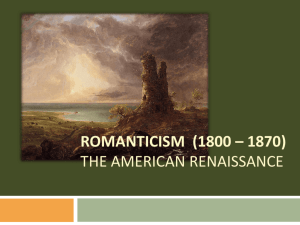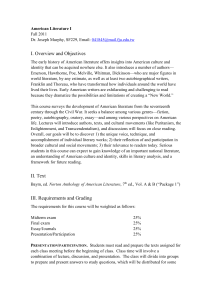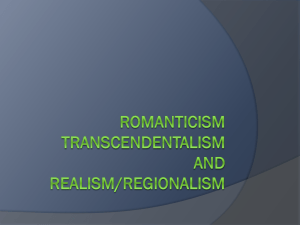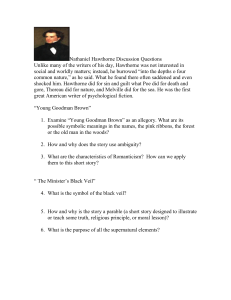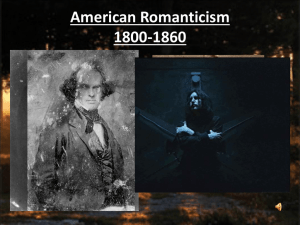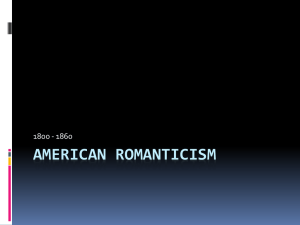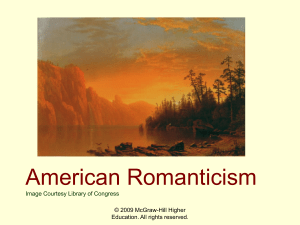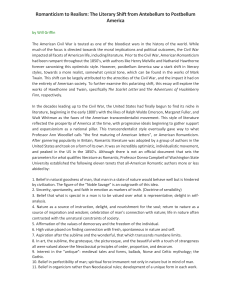Final Exam Fall 2015
advertisement
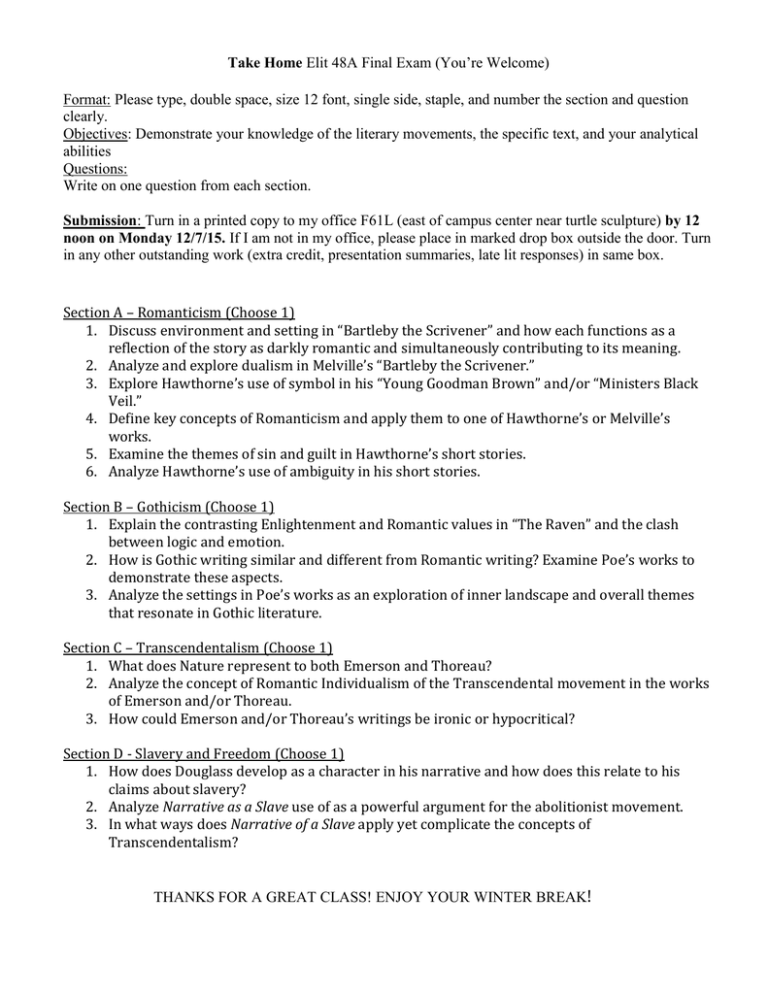
Take Home Elit 48A Final Exam (You’re Welcome) Format: Please type, double space, size 12 font, single side, staple, and number the section and question clearly. Objectives: Demonstrate your knowledge of the literary movements, the specific text, and your analytical abilities Questions: Write on one question from each section. Submission: Turn in a printed copy to my office F61L (east of campus center near turtle sculpture) by 12 noon on Monday 12/7/15. If I am not in my office, please place in marked drop box outside the door. Turn in any other outstanding work (extra credit, presentation summaries, late lit responses) in same box. Section A – Romanticism (Choose 1) 1. Discuss environment and setting in “Bartleby the Scrivener” and how each functions as a reflection of the story as darkly romantic and simultaneously contributing to its meaning. 2. Analyze and explore dualism in Melville’s “Bartleby the Scrivener.” 3. Explore Hawthorne’s use of symbol in his “Young Goodman Brown” and/or “Ministers Black Veil.” 4. Define key concepts of Romanticism and apply them to one of Hawthorne’s or Melville’s works. 5. Examine the themes of sin and guilt in Hawthorne’s short stories. 6. Analyze Hawthorne’s use of ambiguity in his short stories. Section B – Gothicism (Choose 1) 1. Explain the contrasting Enlightenment and Romantic values in “The Raven” and the clash between logic and emotion. 2. How is Gothic writing similar and different from Romantic writing? Examine Poe’s works to demonstrate these aspects. 3. Analyze the settings in Poe’s works as an exploration of inner landscape and overall themes that resonate in Gothic literature. Section C – Transcendentalism (Choose 1) 1. What does Nature represent to both Emerson and Thoreau? 2. Analyze the concept of Romantic Individualism of the Transcendental movement in the works of Emerson and/or Thoreau. 3. How could Emerson and/or Thoreau’s writings be ironic or hypocritical? Section D - Slavery and Freedom (Choose 1) 1. How does Douglass develop as a character in his narrative and how does this relate to his claims about slavery? 2. Analyze Narrative as a Slave use of as a powerful argument for the abolitionist movement. 3. In what ways does Narrative of a Slave apply yet complicate the concepts of Transcendentalism? THANKS FOR A GREAT CLASS! ENJOY YOUR WINTER BREAK!
